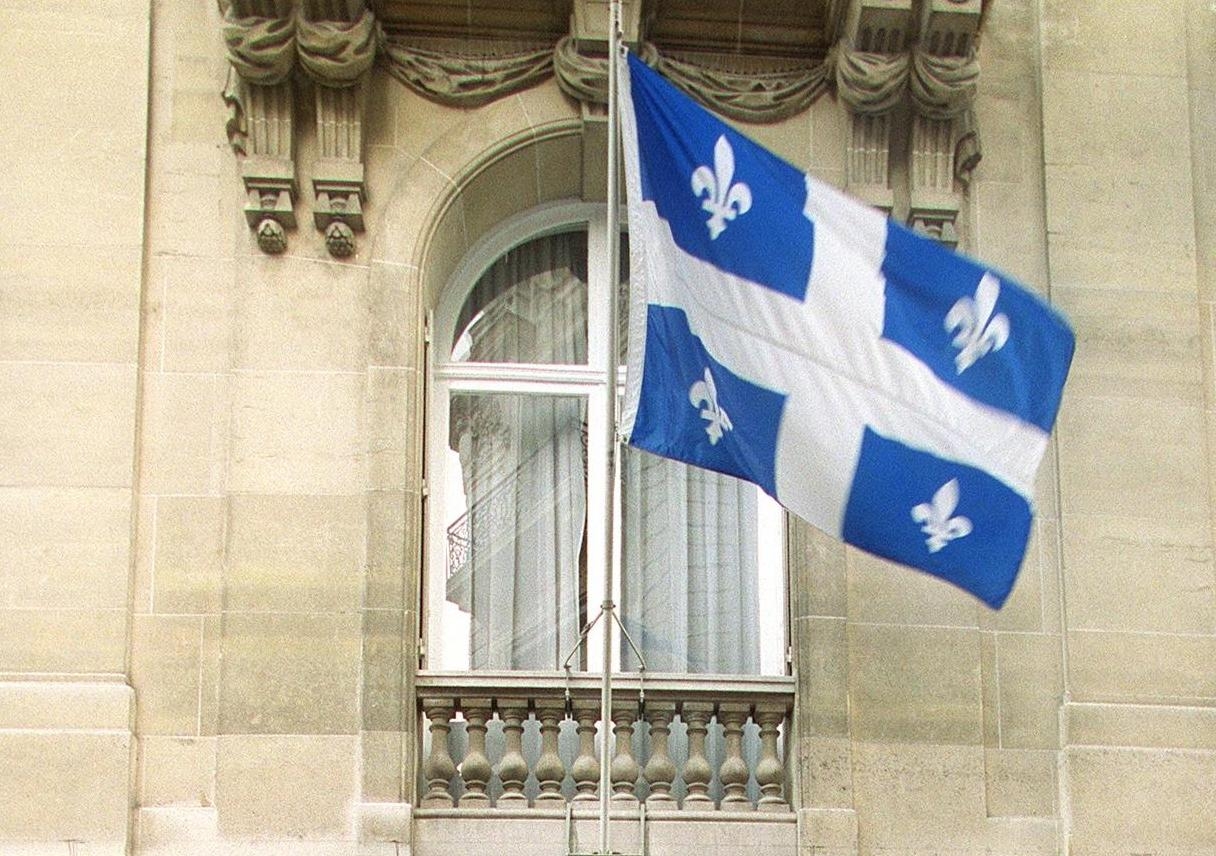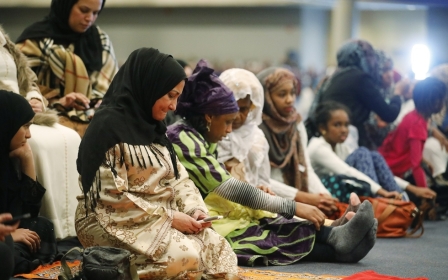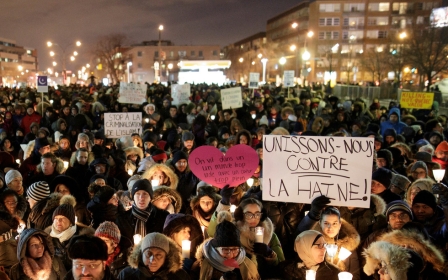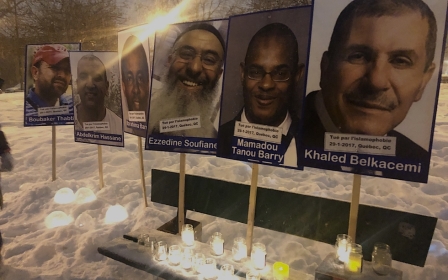Quebec bill would make religious communities 'second-class citizens'

Public consultation hearings have begun on a Quebec bill that would bar some public-sector employees from wearing religious symbols on the job, but religious community advocates have decried the process as political theatre.
The proposed legislation, known as Bill 21, has divided the Canadian province, with hundreds of people taking to the streets of Montreal over the weekend in protest.
Civil liberty groups and community supporters say the measure is unconstitutional, arguing that it violates religious freedom, which is guaranteed under both the Quebec and Canadian charters of rights and freedoms.
In a statement on Tuesday, the National Council of Canadian Muslims (NCCM) said the hearings are "political theatre that are meant to give the illusion of democracy".
The government "is willing to pass a discriminatory law that robs religious minorities of their basic rights and freedoms - and they want to do so without ever hearing from us", said Bochra Manai, the group's Quebec spokeswoman.
New MEE newsletter: Jerusalem Dispatch
Sign up to get the latest insights and analysis on Israel-Palestine, alongside Turkey Unpacked and other MEE newsletters
"Make no mistake: if this law passes, religious minority groups such as Muslims, Jews, and Sikhs will become second-class citizens. They will wake up every day to a different set of opportunities than everyone else in Quebec," Manai said in the statement.
Religious community groups have also decried the public consultation process, saying the government has unfairly tilted the odds in its favour by inviting individuals and groups that back the proposal to testify, while shutting out its detractors.
While the public consultation committee will hear from 36 groups and individuals, CBC News reported that only two interlocutors will represent religious communities - one Jewish and one Muslim. Two interfaith organisations will also testify.
On Tuesday morning, the province's right-wing Coalition Avenir Quebec government held the first of six public consultation hearings scheduled this month on the proposed law.
The government has staunchly defended the bill, saying it aims to enshrine into law a "typically Quebec model of secularism" and highlights the importance of keeping religion and the state separate.
"Quebec is nation. No one contests that reality anymore, or our fundamental right to decide on our own future and the direction of our society," said Simon Jolin-Barrette, the province's minister of immigration, diversity and inclusion, who opened the first hearing on Tuesday.
Dubbed "an act respecting the laicity of the state", the legislation would bar teachers, school administrators, lawyers, and other state employees from doing their jobs while wearing religious symbols.
That may include the hijab worn by Muslim women, or the kippah worn by Jewish men, among other forms of religious dress.
Public-sector employees already in their positions may receive an exemption to the prohibition, provided that their job and employer do not change.
Muslim advocacy groups have said the proposed law overwhelmingly affects Muslim women who wear the hijab - and will lead to their exclusion from society.
'Just balance'
On Tuesday, Jolin-Barrette insisted that the bill finds a "just balance between individual rights and collective rights".
"Quebec has gotten here - to formally inscribe into law that religions and the state are separate," he said at the hearing.
Jolin-Barrette also said the bill reflects the natural progression of five decades of social change in Quebec.
With that, he was referring to the Quiet Revolution, a period of social upheaval in the 1960s that culminated in the Catholic Church's loss of control over key sectors of Quebec society, such as education.
That history of church-held power over Quebec's state institutions is often cited as part of why some Quebeckers support the legislation.
'Make no mistake: If this law passes, religious minority groups such as Muslims, Jews, and Sikhs will become second-class citizens'
- Bochra Manai, National Council of Canadian Muslims
The debate over allowing religious symbols in Quebec's public sector has come up several times over the past decade, with different parties in government introducing - but failing to pass - various legislative proposals.
After securing a majority in provincial elections last autumn, the current Coalition Avenir Quebec government appears to have the best chance at passing its secularism bill this time around.
The government has also indicated it would invoke a clause in Canadian law, known as the notwithstanding clause, to temporarily override protected, individual rights - and thus preemptively stave off a legal challenge against the legislation.
Furheen Ahmed, a Quebec high school teacher who wears the hijab, told Middle East Eye earlier this year that the proposed legislation plays up divisions between Quebeckers.
"It's one of these issues that gets people fired up and gets people really emotional," she said. "It's frustrating because you're constantly having to defend yourself."
Middle East Eye delivers independent and unrivalled coverage and analysis of the Middle East, North Africa and beyond. To learn more about republishing this content and the associated fees, please fill out this form. More about MEE can be found here.





